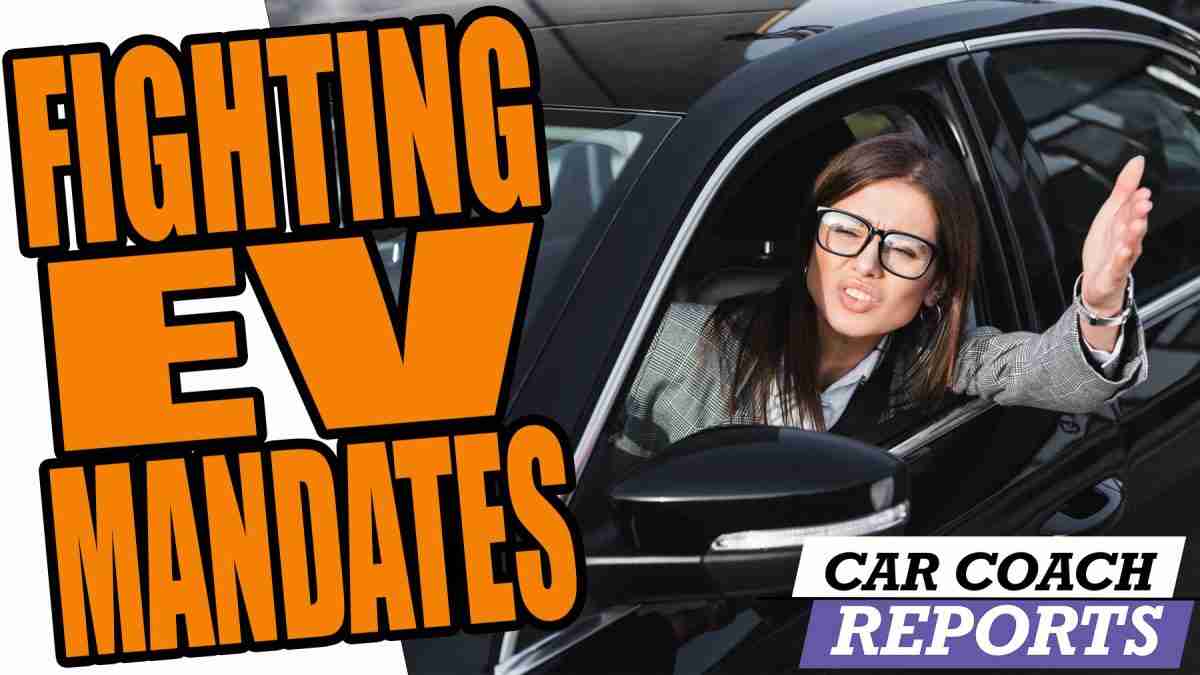Auto Dealers Reiterate Concerns Over EV Mandate Requirements

Table of Contents
Infrastructure Limitations Hinder EV Mandate Success
Insufficient charging infrastructure presents a major obstacle to the successful implementation of EV mandates. Dealers are highlighting critical shortcomings in the current network, particularly impacting the feasibility of meeting mandated EV sales targets. Key issues include:
- Insufficient public charging infrastructure: A significant lack of public charging stations, especially in rural areas and underserved communities, creates a significant barrier to EV adoption. Many potential buyers are deterred by the fear of being stranded with a depleted battery.
- Limited grid capacity: The existing electricity grid may not have the capacity to handle a substantial increase in EV charging demand. Upgrading the grid to support widespread EV adoption requires significant investment and planning.
- Uneven distribution of charging stations: The current distribution of charging stations is uneven, leading to "charging deserts" and range anxiety for potential EV buyers. This uneven distribution disproportionately affects those in rural communities.
- High cost of installing and maintaining charging infrastructure: The cost of building and maintaining a robust charging network is substantial, placing a significant financial burden on both government and private entities. This high initial investment acts as a major deterrent for expanding the necessary infrastructure quickly enough to meet the demands of EV mandates.
Dealers emphasize that without a substantial and strategically planned expansion of the charging infrastructure, EV mandates are unlikely to achieve their intended goals. The current situation creates a significant barrier to entry for potential EV buyers, hindering the widespread adoption crucial for the success of these mandates.
Consumer Demand and Affordability Concerns
Auto dealers are also voicing serious concerns about consumer demand and affordability regarding EVs. While the environmental benefits are clear, several factors hinder widespread consumer adoption:
- High purchase price of EVs: The initial purchase price of EVs remains significantly higher than comparable gasoline-powered vehicles, placing them out of reach for many consumers.
- Limited range of many EVs: Range anxiety, the fear of running out of charge before reaching a charging station, continues to be a major deterrent for potential EV buyers. Longer ranges and faster charging times are crucial to alleviate these anxieties.
- Lack of consumer awareness: Many consumers still lack a thorough understanding of EV technology, charging processes, and the overall benefits of EV ownership. Increased educational campaigns could bridge this gap.
- Insufficient government incentives: Although government incentives exist in many regions, they often aren't sufficient to bridge the significant price gap between EVs and gasoline-powered vehicles, especially for lower-income consumers.
Addressing these affordability and consumer perception issues is paramount for achieving the ambitious targets set by EV mandates. Increased government subsidies, innovative financing options, and targeted public awareness campaigns are all necessary to boost consumer confidence and overcome the financial barriers to EV adoption.
Economic Impact on Dealerships and the Automotive Workforce
The rapid shift to EVs presents significant economic challenges for auto dealerships and the broader automotive workforce. The transition necessitates substantial investments and adaptations, raising concerns about the long-term viability of dealerships and potential job losses. Specifically:
- Potential job losses: A significant reduction in gasoline vehicle sales could lead to job losses within dealerships, particularly those specializing in servicing and repairing internal combustion engine vehicles.
- High costs of workforce training: Dealerships must invest heavily in training their staff on EV maintenance, repair, and battery technology. This represents a significant and immediate financial burden.
- Investment in new equipment and facilities: Servicing EVs requires specialized equipment and facilities, representing a significant capital investment for dealerships.
- Uncertainty regarding long-term financial viability: The uncertain future of the automotive industry, particularly concerning the dominance of EVs, creates significant uncertainty about the long-term financial viability of many dealerships.
Successfully navigating this transition requires a collaborative effort involving government support for workforce retraining programs and financial incentives to help dealerships adapt to the changing landscape. Ignoring these economic concerns could lead to significant disruption within the automotive industry.
Conclusion
Auto dealers are raising valid and substantial concerns about the rapid implementation of EV mandates. The lack of sufficient charging infrastructure, affordability challenges hindering consumer adoption, and the significant economic impact on dealerships and the workforce all underscore the complexities of this transition. Successfully managing this transition requires a collaborative approach, involving government, manufacturers, and dealers, to address these challenges proactively. Open dialogue and collaborative solutions are crucial to ensure a smooth transition to a sustainable and economically viable electric vehicle future. Understanding and addressing the concerns of auto dealers is critical for the successful implementation of EV mandates and building a thriving electric vehicle market for everyone. Let's work together to overcome the challenges surrounding the implementation of EV mandates.

Featured Posts
-
 Buksza Kincskereses Mit Talalhat
May 29, 2025
Buksza Kincskereses Mit Talalhat
May 29, 2025 -
 Choosing The Right Plants For Your Living Fence
May 29, 2025
Choosing The Right Plants For Your Living Fence
May 29, 2025 -
 Hyacinth Bulb Planting Guide Timing For Peak Blooms
May 29, 2025
Hyacinth Bulb Planting Guide Timing For Peak Blooms
May 29, 2025 -
 Horrific Case Mother Found Guilty Of Trafficking Daughter 6 For Eyes And Skin
May 29, 2025
Horrific Case Mother Found Guilty Of Trafficking Daughter 6 For Eyes And Skin
May 29, 2025 -
 Pakistans Crypto Strategy Pccs 50 Day Achievement
May 29, 2025
Pakistans Crypto Strategy Pccs 50 Day Achievement
May 29, 2025
